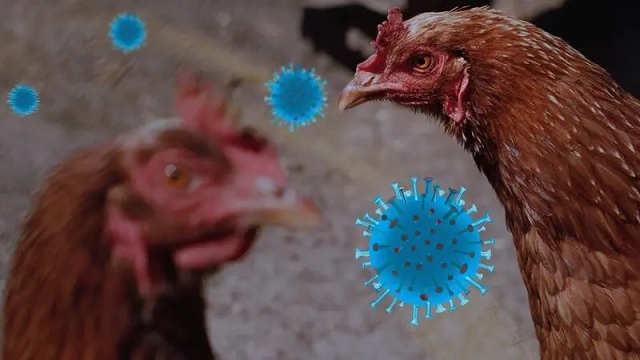WHO reports World’s First Human Death from H3N8 Bird Flu in China
China has recorded the first death due to avian influenza A(H3N8) virus, the World Health Organization said on Wednesday.
New Delhi: China has recorded the first death due to avian influenza A(H3N8) virus, the World Health Organisation said on Wednesday.
China, on March 27, notified the WHO of a H3N8 virus infection in a 56-year-old woman.
The woman from Guangdong province fell ill due to the virus on February 22 and was hospitalized for severe pneumonia on March 3. She subsequently died on March 16, the global health body said in a statement.
“The case was detected through the severe acute respiratory infection (SARI) surveillance system. The patient had multiple underlying conditions. She had a history of exposure to live poultry before the onset of the disease, and a history of wild bird presence around her home,” the WHO said.
According to reports from health officials, the preliminary epidemiological investigation into this event suggests that exposure to a live poultry market may have been the cause of infection.
Health authorities also carried out epidemiological investigation and close contact tracing. They found no other cases among close contacts of the infected individual.
“It appears that this virus does not have the ability to spread easily from person to person, and therefore the risk of it spreading among humans at the national, regional, and international levels is considered to be low,” the WHO said.
However, due to the constantly evolving nature of influenza viruses, the WHO stressed the importance of global surveillance to detect virological, epidemiological and clinical changes associated with circulating influenza viruses which may affect human (or animal) health.
Zoonotic influenza infections in humans may be asymptomatic or may cause disease. Depending on factors related to the specific virus and the infected host, disease can range from conjunctivitis or mild flu-like symptoms to severe acute respiratory disease or even death. Gastrointestinal or neurological symptoms have been reported but these are rare.
Human cases of infection with avian influenza viruses are usually the result of direct or indirect exposure to infected live or dead poultry or contaminated environments.
Samples from the patient’s residence and the wet market where she spent time before the onset of illness tested positive for H3N8, the UN health body said.
This is reportedly the third such case, after China reported two H3N8 cases in 2022 involving a four-year-old boy from Zhumadian City in Henan province and a five-year-old boy from Changsha city in Hunan province.
Meanwhile, the Chinese government has enhanced monitoring and disinfection in the surrounding environment of the patient’s residence and suspected exposure areas. It has also launched public risk communication activities to improve public awareness and adoption of self-protection measures.
Avian influenza A(H3N8) viruses are commonly detected globally in animals. The viruses are some of the most commonly found subtypes in birds, causing little to no sign of disease in either domestic poultry or wild birds. Cross-species transmission of A(H3N8) avian influenza viruses has been reported for various mammal species, including being endemic in dogs and horses.




 Ms Kalinga
Ms Kalinga